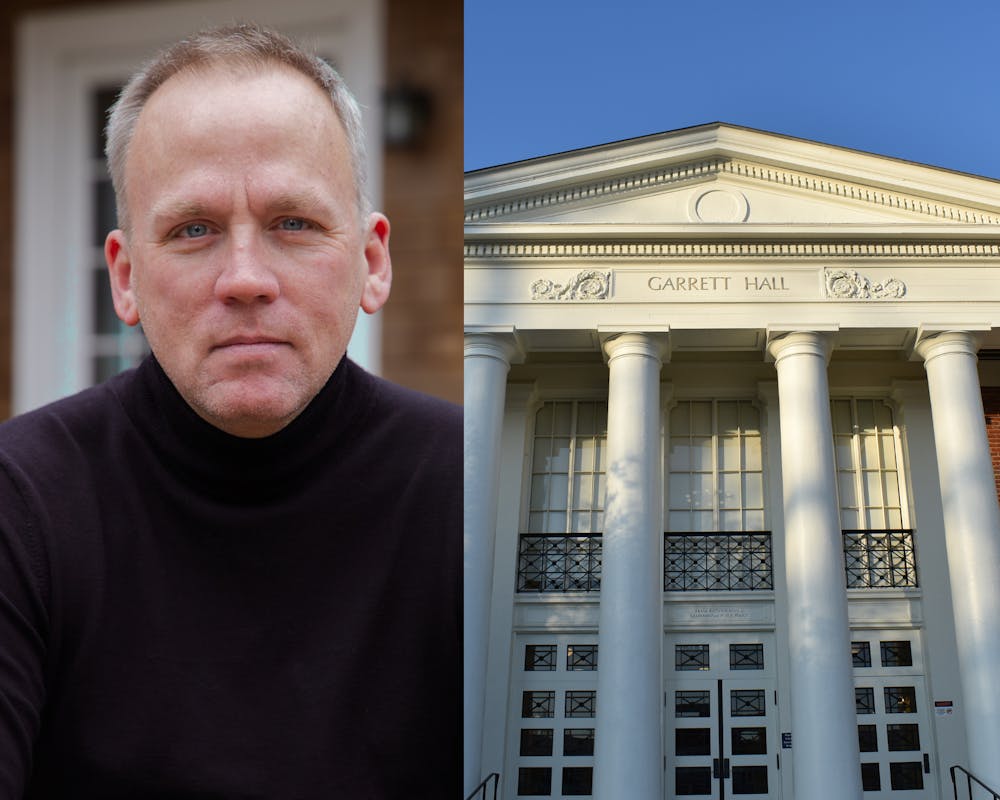The University of Tulsa announced last week that its Board of Trustees had unanimously selected Batten professor Brad Carson to become its next president. Carson will return to his home state of Oklahoma to take on the role at the end of the academic year.
The board engaged in a nationwide search for the University of Tulsa’s next president, and interest in the opportunity was high, with finalists participating in multiple rounds of interviews.
Carson has worked in a variety of fields both inside and outside higher education over the last several decades. He served in the U.S. House of Representatives from 2001 to 2005, worked in the Department of Defense as an undersecretary of the Army and general counselor during President Barack Obama’s administration and served on the faculty of both the business and law schools at the University of Tulsa from 2009 to 2012.
Carson has been teaching at the Frank Batten School of Public Policy since 2018. In the three years since, Carson has taught Batten classes focusing on national security and policy innovation. He is also a Rhodes Scholar whose research on foreign policy, energy policy and American politics has been widely published.
Carson believes that his variety of experience has made him well-equipped to handle the complex challenges facing higher education both more broadly and at the University of Tulsa specifically.
“I always sought out new challenges, exciting opportunities to try to improve difficult situations, and I have garnered, over the years, a lot of experience in managing large, complex organizations,” Carson said. “I think my background plays naturally into the University of Tulsa.”
He cited the transition back to more normal operations as COVID-19 recedes as one of the challenges facing higher education.
“I think coming out of COVID it’s going to be very important that we integrate students into campus life,” Carson said. “I think it's gonna be important that we look at how the curriculum is designed so that we can blend the sciences and the humanities together.”
Outside of the coronavirus context, Carson said that broader demographic changes within higher education pose challenges, too. According to Carson, there will be fewer high school graduates over the next decade and increasing tuition prices are making college “unreachable for many people.” In addition, he said that students and parents are shifting their focus away from the traditional educational model toward more pre-professional programming.
“People insist upon some kind of occupational outcome from college,” Carson said. “I think these are all trends that have to be addressed by any university, and the University of Tulsa is no exception to that.”
For Carson and his family, the idea of Oklahoma being home was a major factor in his decision to return and accept the position at Tulsa. His family has lived in the state for six generations, and he and his wife both grew up in the state. While he received his undergraduate degree from Baylor University in Texas, he went to law school at the University of Oklahoma. He views working at the University of Tulsa again — this time as president — as an opportunity to continue one of his career-long and lifelong goals.
“For me, a lot of my career has been built about how you can improve life in Oklahoma, and a university like the University of Tulsa is a powerful engine for growth and improvement of life in Oklahoma,” Carson said.
Carson represented the congressional district in Oklahoma that is home to the Cherokee Nation — the largest tribe in the United States — and served as president and chief executive officer of Cherokee Nation Businesses, a company owned by the Cherokee Nation that seeks to employ Cherokee Nation citizens in order to expand its economy. There, he was able to significantly increase revenue through his refocusing of strategies.
In addition to improving the lives of Oklahomans, Carson hopes to use his tenure to make the University of Tulsa an institution of national acclaim.
“My hope is to make the University of Tulsa the best university in the country and to make it the school of choice for anyone who lives in the midwest,” Carson said. “That’s my goal for it — to leave the university in 10 years and for people to say that we have realized our promise of being one of the great schools in the country.”
While he looks forward to getting started at the University of Tulsa, Carson said he’s enjoyed his time at the University and that he has been “inspired” and “delighted” by his tenure here.
“I love the University of Virginia, the Batten School has been terrific, and Dean [Ian] Solomon, who leads it, is an incredible leader and an inspiration to me,” Carson said. “The students have really been extraordinary. I have learned as much from them as they probably learned from me.”







